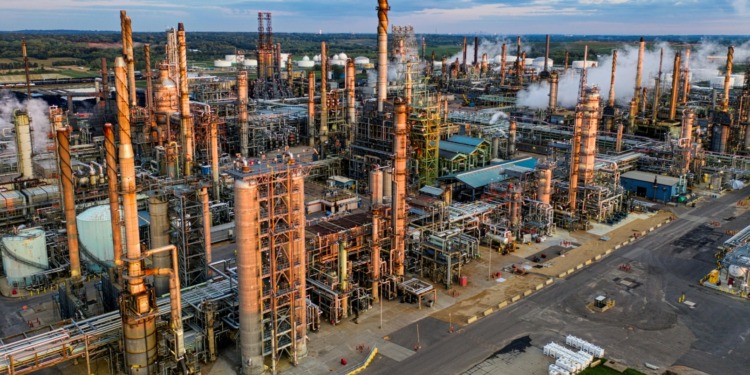Our world is facing a plastic crisis, fueled by our dependence on petrochemicals. Once a symbol of progress, plastic has become a major environmental and health threat, its production intricately linked to the fossil fuel industry.
The International Energy Agency (IEA) shows us a concerning picture: the demand for petrochemical products, the building blocks of plastic, is projected to surge and account for a third of the growth in global oil demand by 2030 and nearly half by 2050. This relentless rise in petrochemical production has led to a situation where human-made synthetic materials now outweigh the total biomass of all living organisms on Earth.
This unsustainable trend is choking our planet’s ecosystems and fueling the global climate crisis. Conventional approaches to curbing unseen plastic demand have fallen short. We need a shift towards sustainable, bio-based alternatives that break free from our dependence on petrochemicals.
“Our economies are heavily dependent on petrochemicals, but the sector receives far less attention than it deserves. Petrochemicals are one of the key blind spots in the global energy debate, especially given the influence they will exert on future energy trends,” said Dr Fatih Birol, Executive Director of the IEA.
Cellugy, a trailblazing Denmark-based startup, hopes to lead the crucial transition towards sustainable, bio-based alternatives to plastics and petrochemicals. By harnessing microorganisms’ metabolic prowess, they craft innovative products like EcoFLEXY — a high-performance, biodegradable, and tunable biocellulose.
The startup was founded in 2018 by Deby Fapyane, Isabel Alvarez-Martos, and Parun Sihombing. In May 2024, they raised EUR €4.9 million in Seed funding to scale up the production of its bio-based solution for personal care products.
“Reliance on fossil-based petrochemical ingredients is today’s most critical sustainability issue in producing personal care products. With our technology, we genuinely see a future completely free from these polluting ingredients,” said Dr. Isabel Alvarez-Martos, CEO of Cellugy. “Our mission is to develop sustainable solutions for everyday products, so we’re naturally pleased to partner with impact-driven investors.”
What is biofabricated cellulose?
A remarkable substance found abundantly in nature, cellulose forms the very building blocks of plant cell walls. It is the invisible architect behind the sturdy structure of trees, the soft suppleness of cotton, and the crunch of vegetables.
Chemically, it’s a complex carbohydrate, a long chain of interconnected sugar molecules known as glucose units. These chains align in an intricate, crystalline structure, providing plants with remarkable strength and rigidity.
Cellugy takes this remarkable natural material to a whole new level through biofabrication. Biofabricated cellulose uses microorganisms, like bacteria or yeast, to produce cellulose in a controlled environment. These microorganisms are fed with sustainable feedstocks, like sugars or waste materials, and in turn, they produce cellulose through a fermentation process.
“We take inspiration from nature herself.”
By manipulating the fermentation process, scientists can tailor the cellulose to have specific characteristics, such as strength, flexibility, or porosity. This level of control allows Cellugy to create bio-based materials that meet the specific needs of various industries.
Most importantly, biofabricated cellulose is inherently biodegradable. Unlike traditional plastics derived from petrochemicals, these bio-based materials can break down naturally at the end of their lifespan, minimizing waste and contributing to a circular economy.
Related Articles: What You Need to Know About the UN’s Draft Global Plastics Treaty | Plasticosis: A Synthetic Health Crisis Waiting in the Wings? | 4 Ways to Reduce Plastic Pollution | Scientists Create the World’s First Soap Made From Plastic | Plastic Recycling: Ditch it or Improve it?
Cellugy’s EcoFLEXY
Through an ingenious application of white biotechnology, Cellugy masterfully bioengineers their nanocellulose material, EcoFLEXY. Their zero-waste process harnesses a specialized bacterial strain to metabolically “bioconvert” simple sugars into pristine nanocellulose fibrils.
This biosynthetic process entirely circumvents the polluting production methods of conventional cellulose derivation: EcoFLEXY is fossil-free, non-GMO, waterless, and designed for responsible end-of-life biodegradation.
Cellugy’s innovative approach allows molecular-level customization, optimizing EcoFLEXY’s characteristics for diverse applications and industries. EcoFLEXY boasts versatile material, finding applications in personal care products and cosmetics, including skin care, hair care and sun car. It can also be used as a barrier layer in packaging and textiles.
Looking ahead: Biofabricated future
In biomaterial pioneers like Cellugy, we get to glimpse a sustainable future where technological innovation gets fused with nature’s natural processes.
As Alixander Perzon, a Material Scientist at Cellugy, said: “We take inspiration from nature herself.”
By mimicking and metabolically harnessing nature’s processes, Cellugy leads closed-loop biomaterials to remediate our global plastic crisis. Yet their EcoFLEXY and similar bio-inspired fabrications represent just the driving force of an ethical industrial revolution transcending petrochemical replacements.
From self-healing infrastructure to revolutionary medical devices, the potential of biofabrication stretches toward redefining entire sectors. As this nature-mimicking technology matures and scales, it catalyzes a grand transition to truly renewable, circular production maximizing resource renewability across supply chains.
Editor’s Note: The opinions expressed here by the authors are their own, not those of Impakter.com — In the Cover Photo: Industrial refinery Cover Photo Credit: Pexels.










